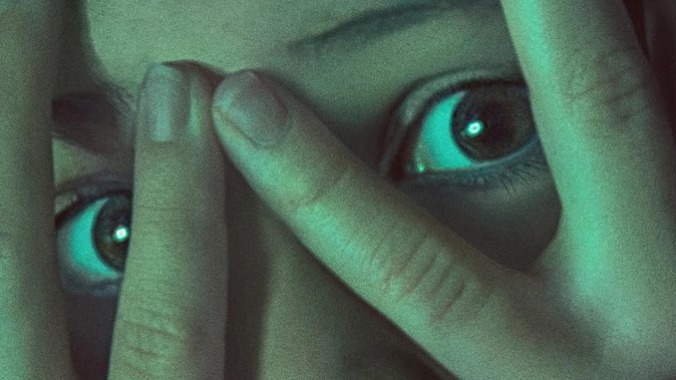Wolf Man Does Right by the Wolf, but Lets Down the Man

Two climacteric monster reveals take place in Leigh Whannell’s Wolf Man. The first is stitched into the opening sequence, where a homesteading survivalist takes his young son hunting in the glades and glens abutting their property, and the script emphasizes again, and again, and again, for all the slowpokes in the crowd, that the real monster is paternal browbeating. The second reveal arrives around an hour later, when the film’s lead trio is menaced by its made-up monster, the title’s promised lupine aberration; not coincidentally, this is the moment where Wolf Man finally gets to be a horror movie.
“Trauma, actually” is a current mainstay theme in horror cinema, predicated on the misguided belief that the trappings that draw audiences to the genre in the first place aren’t nearly as frightening as overdetermined expressions of scarring foundational events; the fear in these films echoes from their protagonists’ pasts. In Wolf Man, that’s Blake Lovell (Zac Chandler), the wide-eyed boy in the prologue, who grew up and moved about as far away as possible from his temperamental father, Grady (Sam Jaeger), and his home state of Oregon. You would think encountering a lycanthrope on that fateful trek would have left a more profound impression on Blake. You would be wrong. Turns out being raised by an apparently single military veteran dad is a much rougher go than being savaged to death by a supernatural apex predator.
One 30 year jump from Wolf Man’s prelude later, adult Blake, played by Christopher Abbott, has a kid of his own, Ginger (Matilda Firth), plus a wobbly marriage with his journalist wife, Charlotte (Julia Garner). Despite the focus on male identity established through Blake’s ordeal with his dad, the movie sets itself up as a parable of motherhood in absentia. Charlotte is introduced barging into the family’s apartment, phone glued to her ear, her attention devoted to trading barbed exchanges with her editor. She isn’t a woman, the movie tells us; she’s a reporter. Charlotte works so much that she not only doesn’t have time for Blake, but for Ginger, which the script helpfully highlights as the greater sin when Charlotte confesses her maternal lapse unprovoked.
The Lovells are in desperate need of family bonding time. Good news, though! A mailer arrives for Blake bearing word of Grady’s death, compelling Blake to haul Charlotte and Ginger to Oregon to clean out his childhood home, which thankfully has sturdy doors to keep out the snarling, snarfling thing that attacks them as they drive their storage truck along rural backroads. Here, Wolf Man starts to pay off its stubborn, extensive build-up, albeit with additional build-up, but the waiting game Whannell plays after moving his characters into isolated territory at least has gravity; with the Lovells barricaded inside the dwelling, the film is able to define and make better use of its cinematic space. Large, creaky homes are classic locations for horror, and this one in particular is isolated to an extent that reads as cosmic. Hinterlands in twilight have an unmoored quality to them, as if they’re not merely isolated from civilization but floating among the stars, where no one can save you but, cruelly enough, people can hear you scream.
-

-

-

-

-

-

-

-

-

-

-

-

-

-

-

-

-

-

-

-

-

-

-

-

-

-

-

-

-

-

-

-

-

-

-

-

-

-

-

-








































